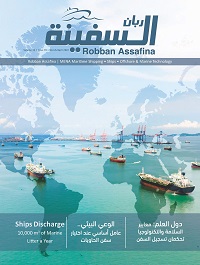Insurer Allianz’s annual shipping review, published yesterday, warned that despite the sector’s continued long-term positive safety trend over the past year, there is no room for complacency due to Russia’s invasion of Ukraine, the growing number of costly issues involving larger vessels, crew and port congestion challenges, and managing decarbonisation targets.
The annual study analyses from the German insurer reports on shipping losses and casualties over 100 gt. Allianz data shows that during 2021, 54 total losses of vessels were reported globally, compared with 65 a year earlier. This represents a 57% decline over 10 years, while during the early 1990s, the global fleet was losing over 200 vessels a year.
The 2021 loss total is made more impressive by the fact that there are an estimated 130,000 ships in the global fleet today, compared with some 80,000 30 years ago. “Such progress reflects the increased focus on safety measures over time through training and safety programs, improved ship design, technology and regulation,” the report noted.
According to the report, there have been almost 900 total losses over the past decade. The South China, Indochina, Indonesia, and the Philippines region is the main global loss hotspot, accounting for one-in-five losses in 2021 and one-in-four-losses over the past decade, driven by factors including high levels of trade, congested ports, older fleets, and extreme weather. Globally, cargo ships account for half of vessels lost in the past year and 40% over the past decade.
While total losses declined over the past year, the number of reported shipping casualties or incidents rose, with the British Isles seeing the highest number. Machinery damage accounted for over one-in-three incidents globally, followed by collisions and fires, with the number of fires increasing by almost 10%.
The shipping industry has been affected on multiple fronts by Russia’s invasion of Ukraine, with the loss of life and vessels in the Black Sea, disruption to trade, and the growing burden of sanctions. According to Allianz, an expanded ban on Russian oil could contribute to pushing up the cost of bunker fuel and impacting availability, potentially pushing shipowners to use alternative fuels. “If such fuels are of substandard quality, this may result in machinery breakdown claims in the future. At the same time, security agencies continue to warn of a heightened prospect of cyber risks for the shipping sector such as GPS jamming, Automatic Identification System (AIS) spoofing, and electronic interference,” the report suggested.
“The insurance industry is likely to see a number of claims under specialist war policies from vessels damaged or lost to sea mines, rocket attacks and bombings in conflict zones,” explained Justus Heinrich, global product leader, marine hull, at Allianz Global Corporate & Specialty (AGCS). “Insurers may also receive claims under marine war policies from vessels and cargo blocked or trapped in Ukrainian ports and coastal waters.”
Cargo fires remain a priority concern. The report noted that there have been over 70 reported fires on containerships alone in the past five years. Fires have also become a major loss driver for car carriers and roro vessels. Salvage is also seen as a growing concern. “Environmental concerns are contributing to rising salvage and wreck removal costs as shipowners and insurers are expected to go the extra mile to protect the environment and local economies,” said Captain Rahul Khanna, global head of marine risk consulting at AGCS. “Previously, a wreck might have been left in-situ if it posed no danger to navigation. Now, authorities want wrecks removed and the marine environment restored, irrespective of cost.”
While the covid pandemic resulted in few direct claims for the marine insurance sector, the subsequent impact on crew welfare and the boom in shipping and port congestion raises potential safety concerns. AGCS analysis showed that with seafarers morale at all times low, commercial pressures, compliance duties and workloads are running high leading to mistakes – 75% of shipping incidents involve human error.
The analysis also warned of the use of non-container vessels to carry containers, raising questions about stability, firefighting capabilities, and securing cargo. “Bulk carriers are not designed to carry containers, which could impact their maneuvering characteristics in bad weather, and crew may not be able to respond appropriately in an incident,” the report warned. It also highlighted that older container and cargo vessels are more likely to result in claims, as they suffer from corrosion, while systems and machinery are more prone to breakdown. The average age of a vessel involved in a total loss over the past 10 years is 28.
In addition, concerns have been raised over the transition to alternative fuels, which could likely bring a heightened risk of machinery breakdown claims, among other risks, as new technology beds down and as crews adapt to new procedures.
Source: Splash 247
| Read Here | |
 |
|




